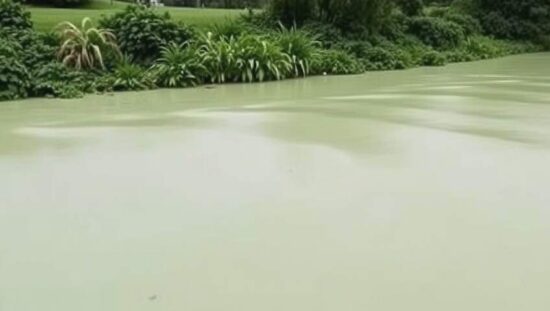The ecological health of rivers and lakes in Berlin and Brandenburg is, in several areas, demonstrably poorer than stipulated by the EU’s Water Framework Directive, originally enacted in 2000. Investigations by RBB, based on inquiries to relevant authorities, reveal that these waterways are facing challenges stemming from climate change, pollutant and nutrient runoff and overuse.
The condition of transboundary rivers Spree and Havel, along with their connected lakes, exemplifies the broader water quality situation within the region in 2024. Assessments undertaken at numerous measurement points along the Spree and Havel have yielded results falling short of the “good status” benchmark defined by the EU directive, with ecological assessments predominantly indicating “red” or “orange” classifications. This deterioration has ramifications not only for fish populations, birds and smaller aquatic flora and fauna, but potentially for recreational users like anglers and those seeking leisure activities on the water, as well as impacting groundwater and drinking water reserves.
Berlin’s State Secretary for Climate Protection and the Environment, Britta Behrendt, has indicated that full compliance with the Water Framework Directive by the targeted 2027 deadline is unlikely. “The situation is quite challenging” she stated. “We won’t be where we need to be according to the Water Framework Directive by 2027.
Jean Henker, head of a relevant department within the Potsdam Ministry of Environment, echoed this cautious outlook, highlighting significant obstacles to reversing the trend. “It requires individuals willing to implement measures” Henker explained. “The pool of skilled professionals is dwindling, particularly in construction and related fields, necessitating expertise in building capacity, planning and the like. Crucially, it also requires funding, which is increasingly scarce given current budgetary constraints. Even if all the necessary elements are assembled, bureaucratic hurdles remain a substantial issue.
The EU Water Framework Directive utilizes a range of parameters to assess the ecological conditions of waterways, including biological and chemical water quality, algal and aquatic plant colonization, fish populations and the presence of pollutants such as phosphorus and nitrogen.
Across the EU, only 37% of waterways are currently classified as being in “good ecological status”. The EU retains the option of initiating infringement proceedings and imposing sanctions if compliance is not achieved.





